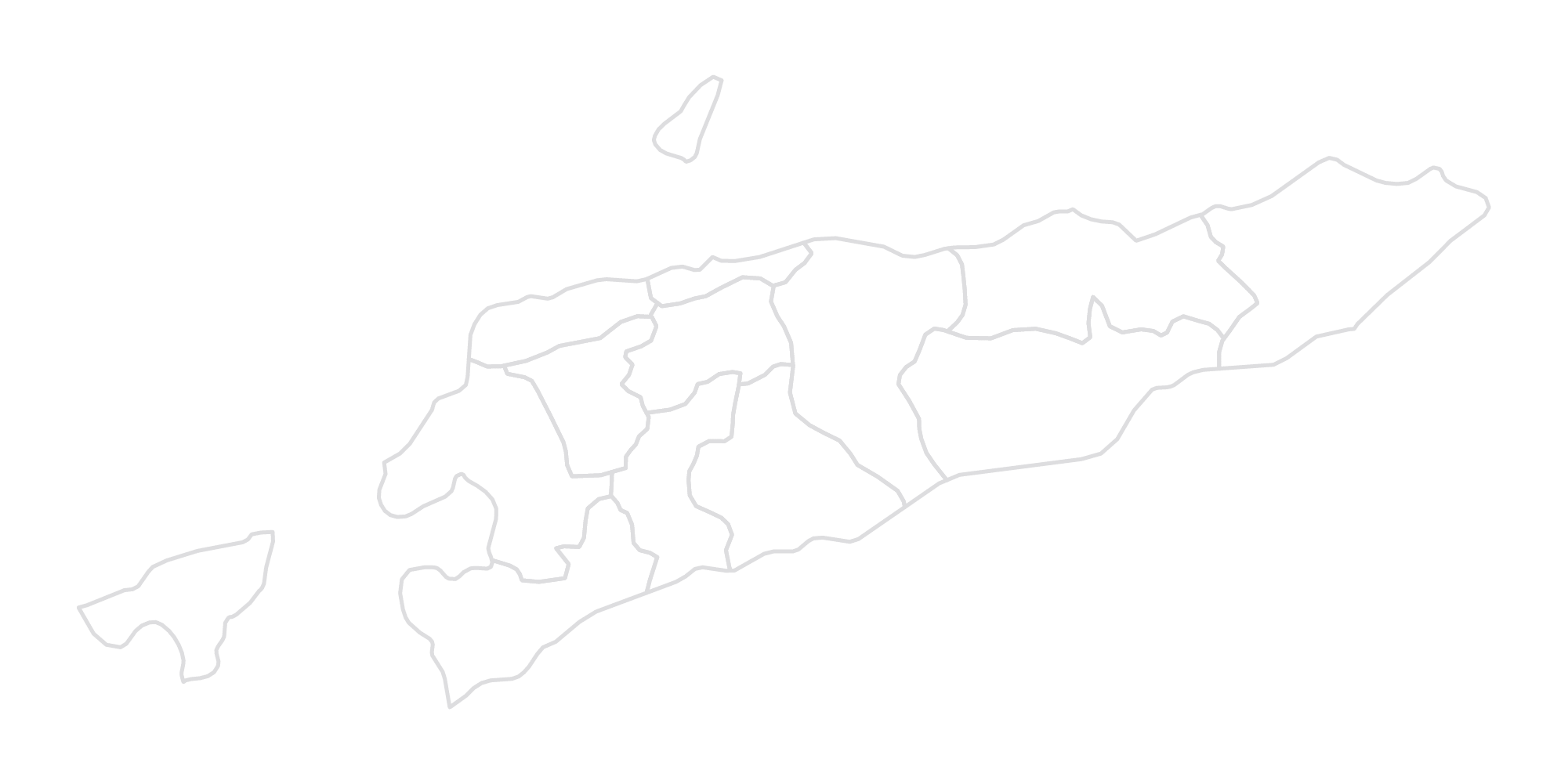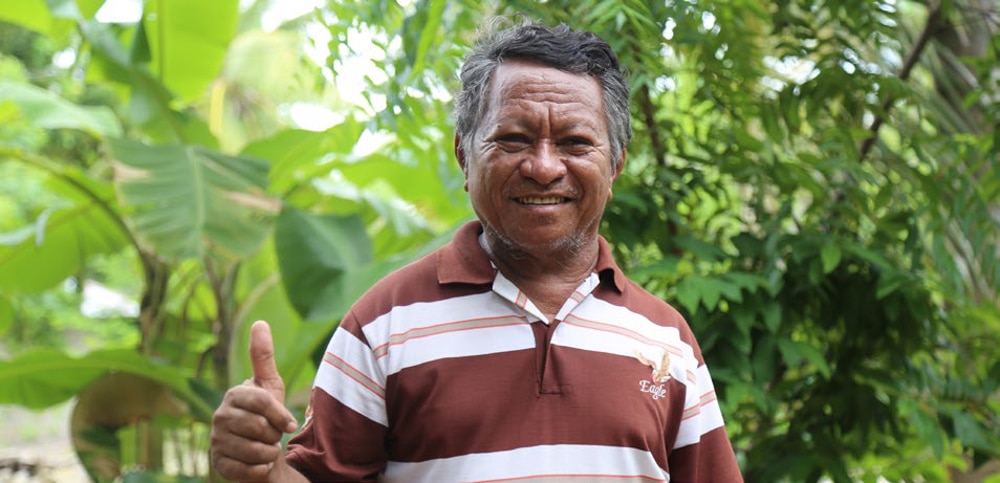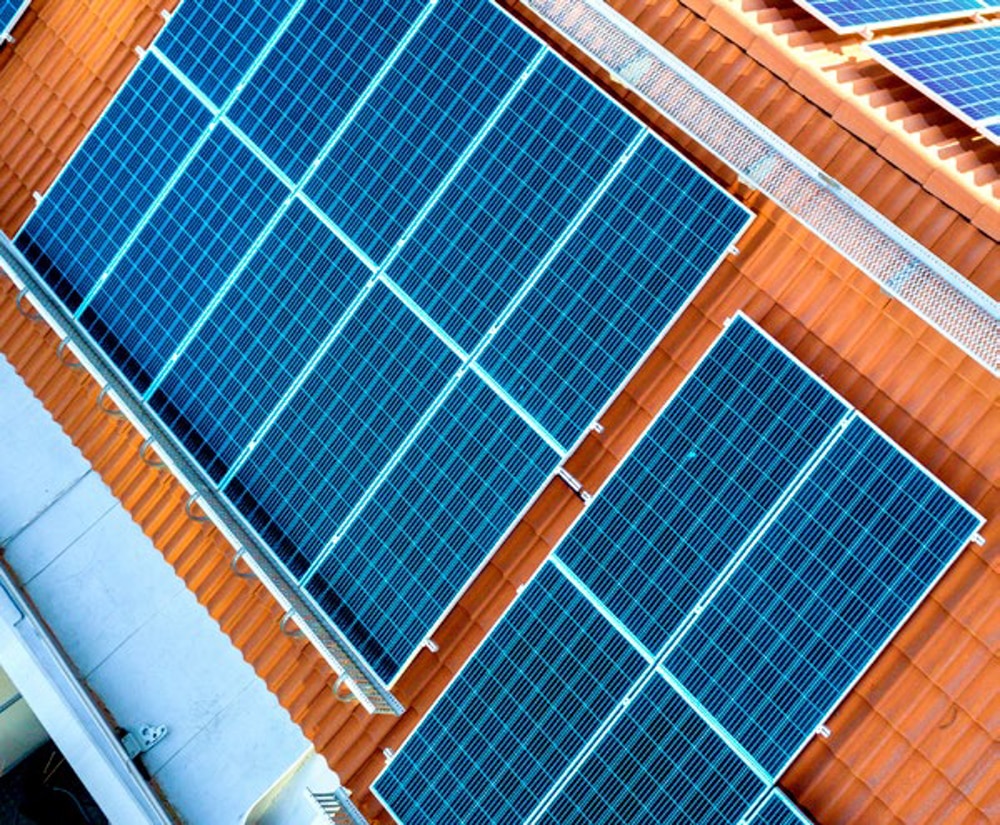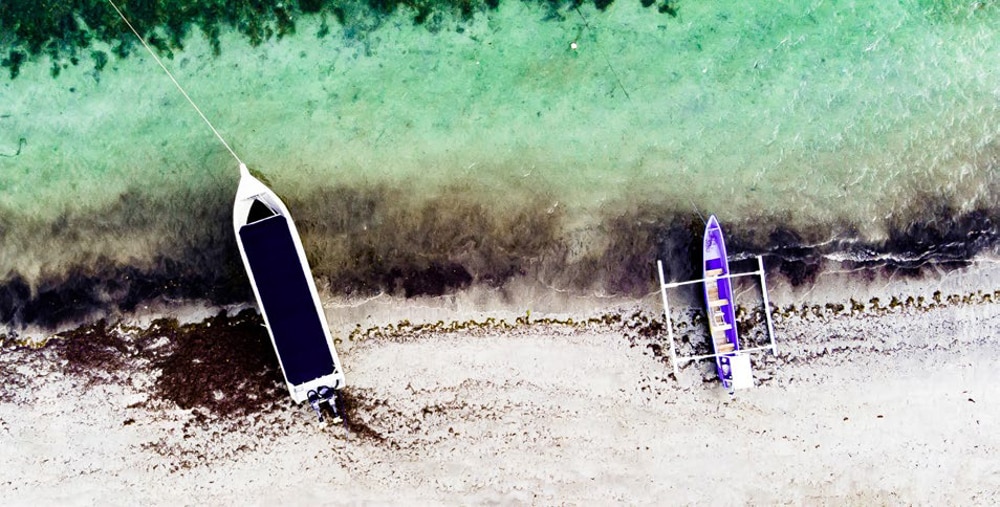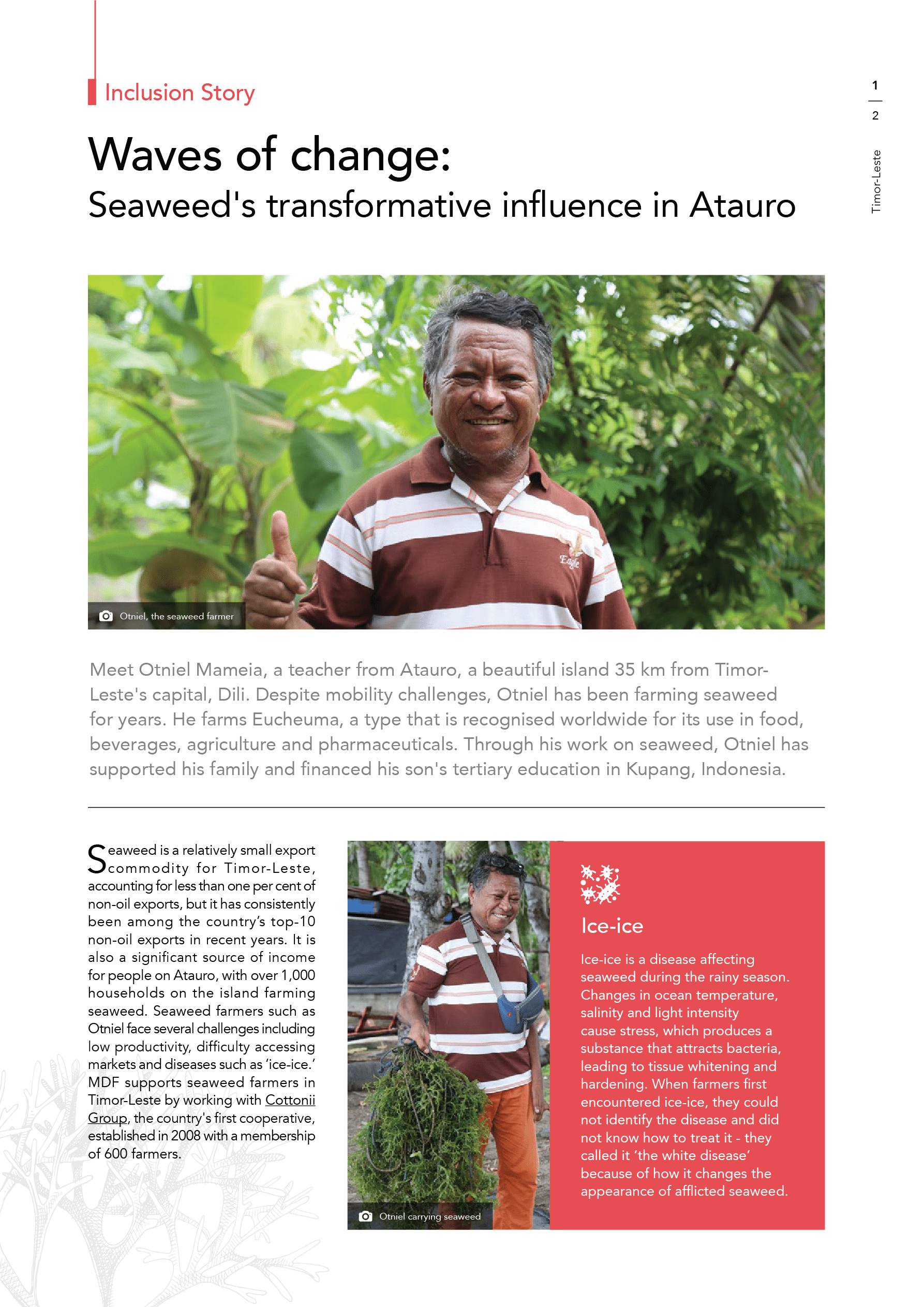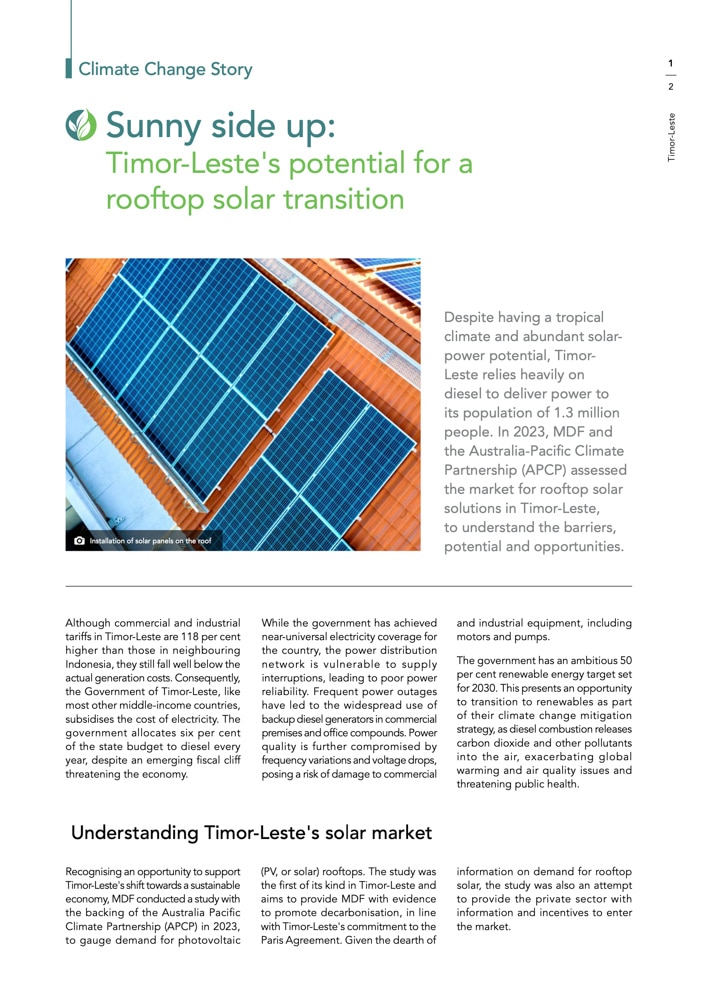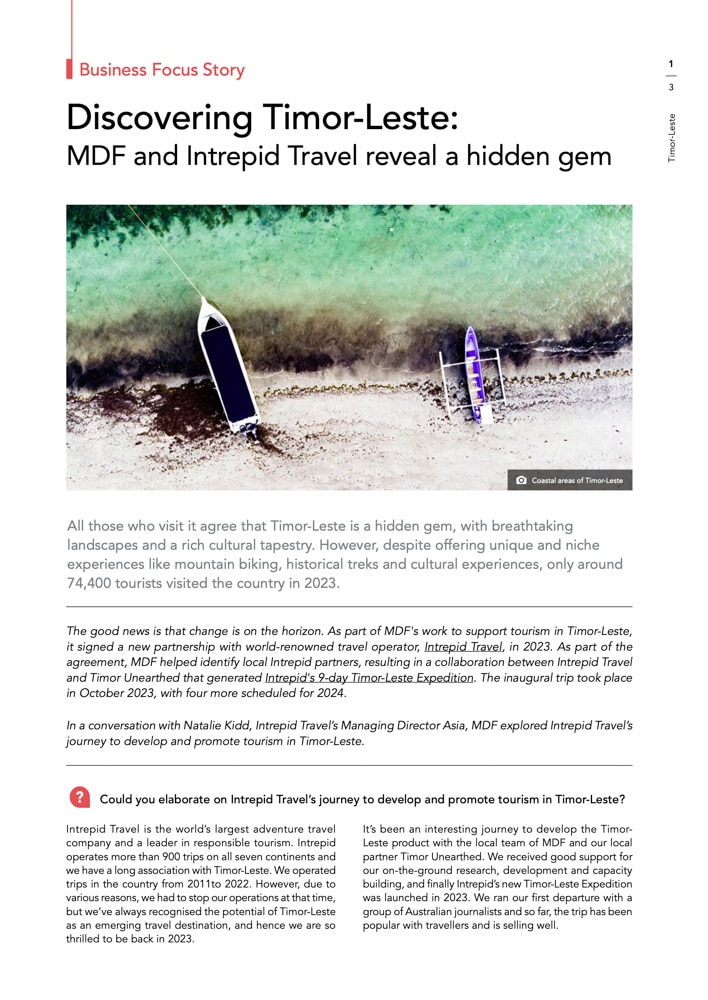Effective
outreach
Net additional
income
Private Sector
Investment leveraged
Value of additional
market transactions
Climate Change
Timor-Leste emits well below the global per capita average of greenhouse gas emissions. Nevertheless, it is highly vulnerable to the effects of climate change. Approximately 70 per cent of the population relies on low-input, rainfed agriculture. The country is susceptible to the increasingly frequent and unpredictable natural disasters expected from climate change, including flooding, droughts, landslides and soil erosion. El Niño is likely to reduce rainfall in Timor- Leste—in 2015-2016, El Niño caused a drought that severely affected 400,000 people mainly in the South and East.
In 2023, MDF accelerated climate change activities to meet the facility’s goal of 30 per cent climate finance. In agriculture, MDF focused efforts on building farmer and supply chain resilience. MDF signed new interventions to improve coffee drying, to offset the effects of unpredictable rains on coffee quality. In early-stage exports, MDF worked with its seaweed partner to implement new methods for planting and drying that reduce disease and improve quality. MDF collaborated with the Australia Pacific Climate Partner on research into the effects of climate change on Timor-Leste’s coffee sector and on the business case for investing in rooftop solar. Following the study on rooftop solar, MDF signed one new partnership, which will be implemented in 2024.
